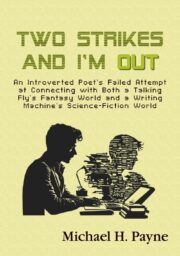Neurodiversity and the Business of Writing, Part 2: ND Difficulties in Publishing
by Matthew Broberg-Moffitt Part 1 of this series focused on the importance of #OwnVoices stories and the representation of neurodiversity and the neurodiverse (ND) in modern media. Part 2 covers the business of traditional publishing and the unique challenges that the ND face when attempting to get a seat at the proverbial table. For those […]


